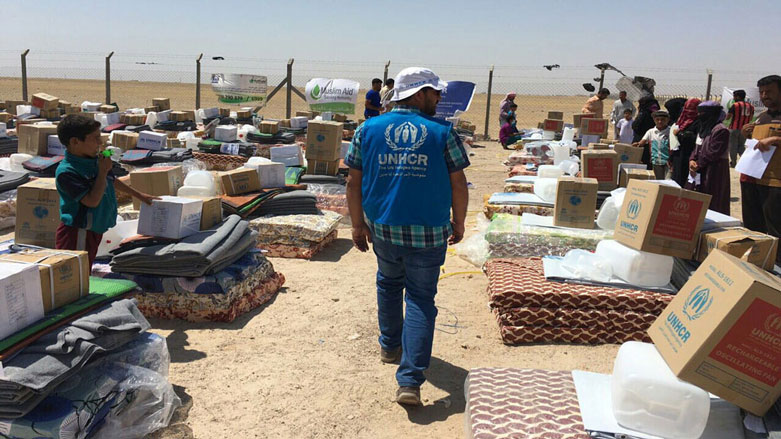UN to administer $2.1 billion aid in Iraq, not Baghdad

WASHINGTON, United States (Kurdistan24) – At Friday’s press briefing, US State Department Spokesman John Kirby clarified a significant point regarding the large sum of money recently raised for reconstruction and humanitarian relief in Iraq.
On July 20, 24 members of the international coalition against the Islamic State (IS) met in Washington, DC and pledged $2.1 billion USD for humanitarian relief.
The money was raised for people who have had to flee from IS and for reconstruction in areas liberated from the insurgents.
Responding to a question from Kurdistan24, Kirby explained that the money raised at the Pledging Conference would be administered through the United Nations, not distributed through Baghdad, as had been initially reported.
A State Department Spokesperson had earlier said that the aid would be administered through the Iraqi government, prompting concern and protest in Erbil.
The Kurdistan Region hosts 2/3 of the three million refugees and Internally Displaced Persons (IDPs) in Iraq. Another one million are expected in the context of the planned Mosul offensive.
If the international aid were administered through Baghdad, the Kurdistan Regional Government (KRG) is expected to receive nothing, despite the heavy burden it bears in supporting the large number of refugees and IDPs.
Transparency International ranks the Iraqi government at 261 out of 268 on its corruption index.
Baghdad has provided virtually no support to Kurdistan from the multi-billion dollar loans it had recently received from the World Bank and the International Monetary Fund.
Informed of Kirby’s clarification today, a senior official at the KRG mission in Washington expressed his pleasure.
Additionally, he emphasized that the focus now in the camps is preparing refugees and IDPs for the winter weather.
Editing by Karzan Sulaivany
